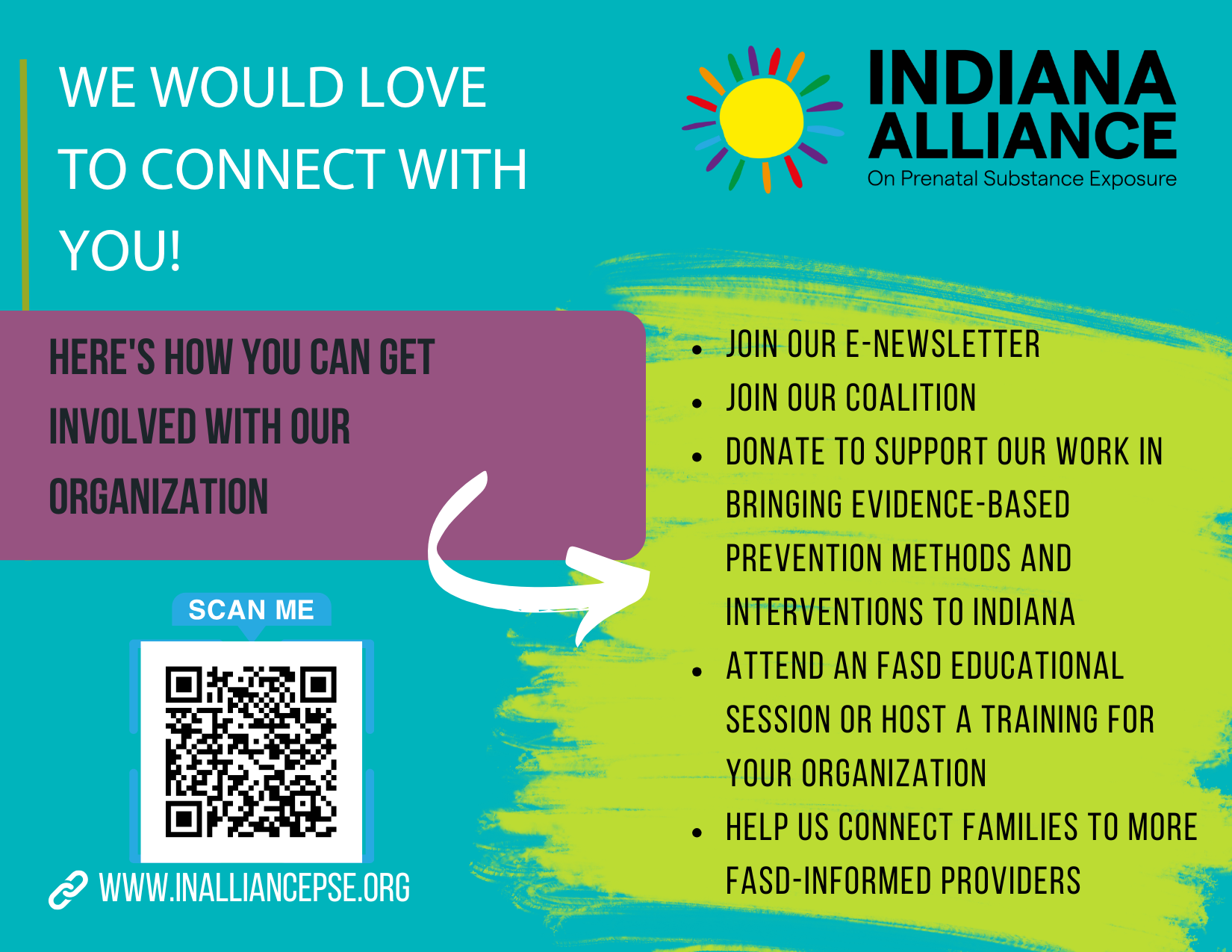Introduction
Most women don’t know that by having one drink while they are pregnant exposes their child to the leading cause of mental retardation: Fetal Alcohol Spectrum Disorders (FASD). FASD is an umbrella term that describes the range of effects that can result from prenatal alcohol exposure. These effects may include physical, mental, behavioral, and learning disabilities that continue into adulthood.
Fetal Alcohol Syndrome (FAS), the most severe FASD, is characterized by irregular facial features, growth deficiencies, and brain damage. Children diagnosed with FAS may also have associated behavioral and cognitive problems that include mental retardation, learning disabilities, attention deficits, hyperactivity, poor impulse control, and social, language, and memory deficits. FASD are 100 percent preventable, yet they constitute the leading cause of mental retardation in the United States.
The only way to prevent FASD is to avoid drinking alcohol during pregnancy. However, more than one in five women report using alcohol in the first trimester, while one in fourteen report use in the second trimester, and one in twenty report use in the third trimester. Binge drinking, which is known to increase the chance of an FASD, is reported by one in nine women during the first trimester, while one in thirty pregnant women report high-risk drinking.
Impact of FASD on Children and Families
A diagnosis of FASD can be very challenging for both the child and family. Caring for a person with an FASD over the course of their life can cost as much as $5 million, and require concentrated attention to their immediate and long-term educational, emotional and physical needs. However, an increased understanding of the difficulties a child faces and adaptation to these needs can lead to a very rewarding relationship. Here are some tips for parenting a child with an FASD:
If you are parenting a child with FASD:
- Don’t expect them to act like other children. They aren’t like children who do not have brain damage.
- Catch them being good and overdo the praise. Praise them several times for every correction.
- Understand that they may need more time to complete tasks that you give them.
- Give one instruction at a time, and be sure to get their eye contact when you are talking to them.
- Don’t try to change multiple behaviors at one time. Focus on one or two things at a time. Let the rest go for now.
- Try to find activities that you can enjoy together. Having fun, laughing, and sharing positive experiences will be good for both of you.
- Take good care of yourself so you can take good care of them.
Obtaining a Diagnosis
Obtaining an early diagnosis of FASD is important for several reasons, including the increased risks for:
- Poor bonding, and a failure to thrive
- Increased risk of abuse and neglect
- Early removal from home, with multiple placements
- Fewer resources to address cognitive and behavioral problems
- Early school failure due to inadequate recognition of cognitive and behavioral difficulties
- Social and emotional isolation of the child
- Delinquent behavior and involvement in the criminal justice system
However, early intervention can help:
- A person receive appropriate services
- The family adjust and improve parenting by increasing self-awareness and understanding
- Facilitate intervention into multiple social environments (school, extracurricular activities, home)
- Facilitate an understanding of the child’s challenges, and a focus on their individual strengths and interests
(Adapted from Diane B. Malbin, FAS Resource Coalition)
Only trained professionals can diagnose FASD. If you think your child has the following, you should consider getting an assessment:
- Sleeping, breathing or feeding problems
- Small head or facial or dental anomalies
- Heart defects or other organ dysfunction
- Deformities of the joints, limbs and fingers
- Slow physical growth before or after birth
- Vision or hearing problems
- Mental retardation or delayed development
- Behavioral problems
- Known maternal alcohol use
To obtain an assessment for FASD, you can go to a developmental pediatrician, an FASD clinic, a genetics clinic, or another specialist. The National Organization on Fetal Alcohol Syndrome (NOFAS) has a website directory of available FASD services at www.nofas.org/resource/directory.aspx.
Assisting School Age Children With FASD
Once children with an FASD reach school age, they are likely to face several challenges in this new environment. If you are parenting a school-aged child with FASD, you will want to watch for and seek help for:
- Visual and auditory processing problems
- Difficulty with reading comprehension
- Memory problems
- Attention deficits
- Problems with social skills
- Problems following multiple directions or rules
- Difficulty with math or abstract reasoning
- Inability to understand cause and effect
- Difficulty organizing tasks and material
If a parent is contacted by their child’s teacher who suspects any of the above behavior or learning problems, they are urged to request psychoeducational testing, which can assist in the identification of central nervous system dysfunction and appropriate diagnosis.
For children who are already identified as having an FASD, several tips have been identified when working with these children:
- Do not use metaphors, similes and words with double meanings or slang
- Be consistent in your oral directions
- Repeat instructions several times if needed
- Follow a routine and provide consistent structure
- Keep it simple and minimize distractions
- Be specific and give instructions one step at a time
- Supervise closely (they are more apt to be naïve, trusting and lack social skills)
Preventing FASD
FASD is 100 percent preventable if women do not drink while they are pregnant. However, everyone can play a role in preventing an alcohol-exposed pregnancy. The U.S. Department of Health and Human Services Substance Abuse & Mental Health Services Administration (SAHMSA) suggests that:
- Physicians advise patients to abstain from drinking during pregnancy.
- Spouses, partners, friends and family members support pregnant women who choose not to drink.
- Alcohol treatment programs give priority to pregnant women.
- Schools teach young people about the dangers of drinking while pregnant as a part of underage drinking prevention efforts.
Useful Websites
This article appeared originally at www.helpstarthere.org







